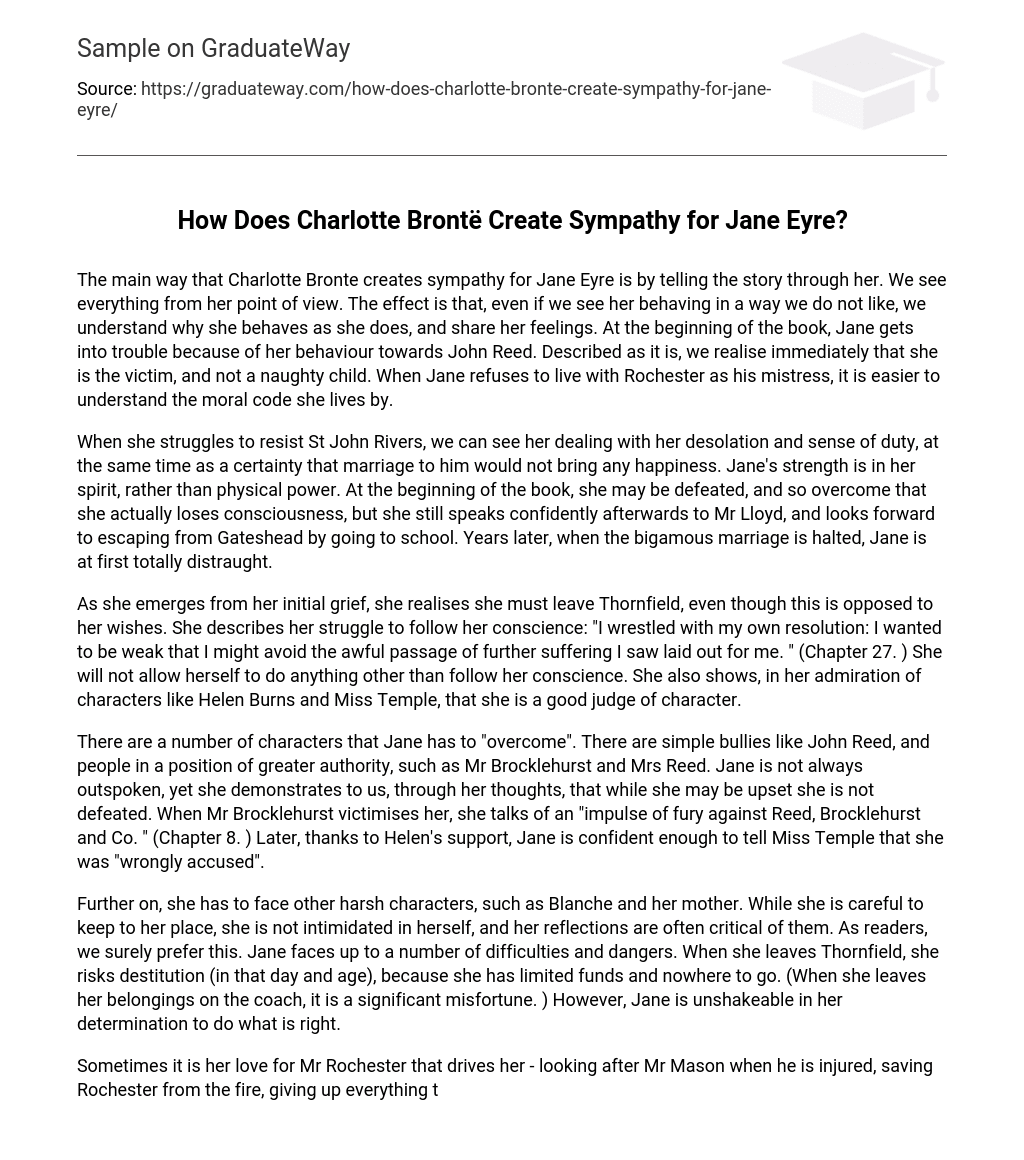The main way that Charlotte Bronte creates sympathy for Jane Eyre is by telling the story through her. We see everything from her point of view. The effect is that, even if we see her behaving in a way we do not like, we understand why she behaves as she does, and share her feelings. At the beginning of the book, Jane gets into trouble because of her behaviour towards John Reed. Described as it is, we realise immediately that she is the victim, and not a naughty child. When Jane refuses to live with Rochester as his mistress, it is easier to understand the moral code she lives by.
When she struggles to resist St John Rivers, we can see her dealing with her desolation and sense of duty, at the same time as a certainty that marriage to him would not bring any happiness. Jane’s strength is in her spirit, rather than physical power. At the beginning of the book, she may be defeated, and so overcome that she actually loses consciousness, but she still speaks confidently afterwards to Mr Lloyd, and looks forward to escaping from Gateshead by going to school. Years later, when the bigamous marriage is halted, Jane is at first totally distraught.
As she emerges from her initial grief, she realises she must leave Thornfield, even though this is opposed to her wishes. She describes her struggle to follow her conscience: “I wrestled with my own resolution: I wanted to be weak that I might avoid the awful passage of further suffering I saw laid out for me. ” (Chapter 27. ) She will not allow herself to do anything other than follow her conscience. She also shows, in her admiration of characters like Helen Burns and Miss Temple, that she is a good judge of character.
There are a number of characters that Jane has to “overcome”. There are simple bullies like John Reed, and people in a position of greater authority, such as Mr Brocklehurst and Mrs Reed. Jane is not always outspoken, yet she demonstrates to us, through her thoughts, that while she may be upset she is not defeated. When Mr Brocklehurst victimises her, she talks of an “impulse of fury against Reed, Brocklehurst and Co. ” (Chapter 8. ) Later, thanks to Helen’s support, Jane is confident enough to tell Miss Temple that she was “wrongly accused”.
Further on, she has to face other harsh characters, such as Blanche and her mother. While she is careful to keep to her place, she is not intimidated in herself, and her reflections are often critical of them. As readers, we surely prefer this. Jane faces up to a number of difficulties and dangers. When she leaves Thornfield, she risks destitution (in that day and age), because she has limited funds and nowhere to go. (When she leaves her belongings on the coach, it is a significant misfortune. ) However, Jane is unshakeable in her determination to do what is right.
Sometimes it is her love for Mr Rochester that drives her – looking after Mr Mason when he is injured, saving Rochester from the fire, giving up everything to return to him when she senses him calling to her. Yet her response on all of these occasions is not that of a weak character, and we admire her. Jane has the strength to do what is right, whatever her desire. The only time she wavers from this certainty is when St John pursues her and she wonders whether it would be her duty to go with him. However, the novel is more romantic than a moral tract, and it is at this point that Rochester calls to her and we know she will be happy.





